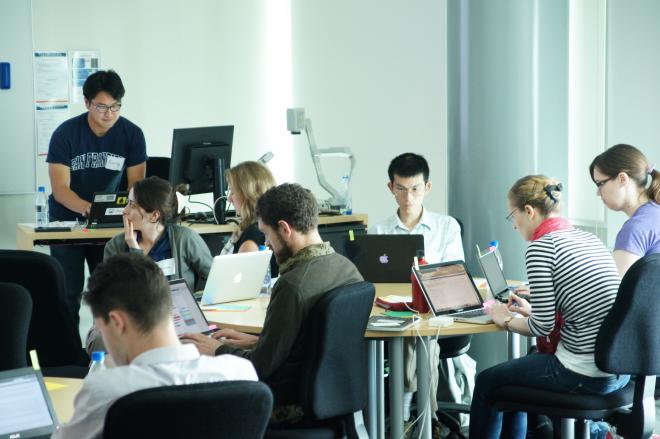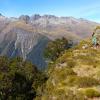Software Carpentry in New Zealand: The seed has been planted
Since 2014, after having identified a skills gap within the research community, NeSI has run a series of workshops to upskill researchers in digital research tools and methods. While modern research increasingly relies on computers, many researchers have inadequate training in computing and often resort to suboptimal solutions and tools.
As a national high-performance computing service provider, NeSI saw the need to support the growth of the computing capability of the New Zealand research community and, as such, became an official affiliate of the Software Carpentry Foundation.
Software Carpentry is an international research computing skills training initiative. The foundation has gained tremendous experience in providing researchers with high-quality training since 1998 worldwide. Software Carpentry training is typically given as a two-day ‘boot camp’ and covers essential digital skills and tools such as basic task automation using unix shell, programming concepts (Python or R), version control and collaboration using GIT and data management with SQL. It promotes an active, ‘hands-on’ approach to learning, in which a team of certified instructors is supported by a number of helpers.
NeSI’s Computational Science team members John Rugis and Sung Bae became certified Software Carpentry instructors in February 2015 and began a nationwide series of workshops in collaboration with six universities at seven campuses, holding training events at the University of Canterbury, Auckland University of Technology, the University of Otago, Massey University at Palmerston North, Victoria University of Wellington, Massey University at Albany and Lincoln University between February and November 2015.
Each training event had 30~40 participants from various research fields, the majority from science and engineering, and a significant number from a broader range of disciplines. The workshop at Victoria University of Wellington was particularly notable for its quick uptake and disciplinary diversity of participants. NeSI’s training programme manager, Sung Bae, notes “It was overwhelming to witness all 40 seats fully booked within six hours. We noted a strong demand from the humanities and social sciences.” Bae also notes “It was sometimes challenging to accommodate participants from diverse backgrounds and with a wide range of prior knowledge and experience.” Based on information collected from the pre-event surveys, the instructor team review the curriculum and revise the teaching material to give a more engaging learning experience.
Feedback responses following the training workshops were very positive. NeSI adopted an industry-standard approach to evaluate the quality of training offerings, and Software Carpentry events scored an overall rating of 4.34 out of 5.00. One of the most received requests was a call for Software Carpentry or similar training on a regular basis.
To accommodate this growing need from the New Zealand research community, NeSI is hosting New Zealand’s first Software Carpentry Instructor Training from January 28 to 29 2016. Aleksandra Pawlik from the Software Sustainability Institute UK, a certified Software Carpentry instructor trainer, will team up with NeSI’s John Rugis to train candidates from various research institutions and universities. The outcome of this will be 20 new certified instructors in New Zealand, and a commitment from each new instructor to run two workshops during 2016.
NeSI plans to work together with the new instructors and host more Software Carpentry events at their local institutions on a regular basis. “The seed has been planted and watered. In 2016, we will make it grow together with the community,” says Bae. “If we keep the momentum and excitement from the research sector going, we will see a growing number of community-driven training activities in New Zealand.”







